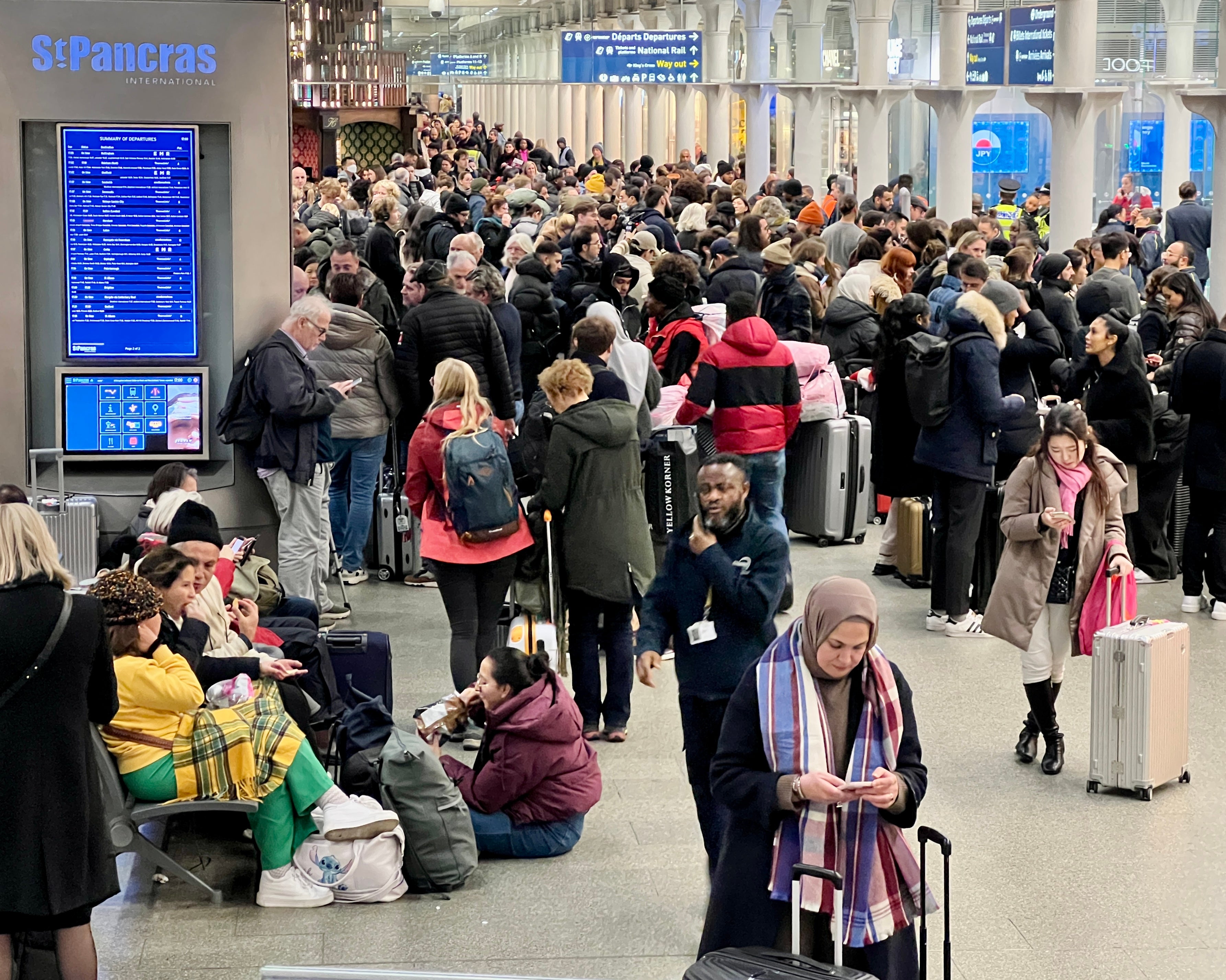Meet the UK’s unluckiest rail passenger: Pat Williams from Crewe
The Man Who Pays His Way: We must reboot the new year, according to the Julian calendar, and hope train travel improves


Your support helps us to tell the story
From reproductive rights to climate change to Big Tech, The Independent is on the ground when the story is developing. Whether it's investigating the financials of Elon Musk's pro-Trump PAC or producing our latest documentary, 'The A Word', which shines a light on the American women fighting for reproductive rights, we know how important it is to parse out the facts from the messaging.
At such a critical moment in US history, we need reporters on the ground. Your donation allows us to keep sending journalists to speak to both sides of the story.
The Independent is trusted by Americans across the entire political spectrum. And unlike many other quality news outlets, we choose not to lock Americans out of our reporting and analysis with paywalls. We believe quality journalism should be available to everyone, paid for by those who can afford it.
Your support makes all the difference.Simon Calder, also known as The Man Who Pays His Way, has been writing about travel for The Independent since 1994. In his weekly opinion column, he explores a key travel issue – and what it means for you.
The first time I met Pat Williams from Crewe was on Friday 22 December. At the time, she was enduring a fairly bleak midwinter journey to visit family in southern France. Pat had done the right – if difficult and expensive – thing. Rather than hopping on the 42-minute train from her local station to Manchester airport and flying from there, she was determined to limit her damage to the planet. Pat booked a trip by rail via London and Paris.
The previous day, her journey from Crewe to London Euston had been delayed for five hours on the West Coast main line. With every minute, the stress grew. Pat soon knew it was inevitable that she would miss her booked Eurostar train from St Pancras International to Paris. Regrettably, the rail industry is not as good as airlines at protecting passengers whose planned itineraries fail at the first hurdle. Would she lose her planned train and have to pay possibly hundreds of pounds to get her plans back on track?
Fortunately, that proved academic. Her Eurostar train had already been cancelled as a result of a sudden walk-out by French staff working in the Eurotunnel control centre in Calais. With 30 trains axed on one of the busiest days of the winter, she became one of 25,000 passengers needing somewhere to stay and a replacement Eurostar train. Her family sourced a London hotel, and Eurostar found a seat the following afternoon – which was when I met Pat, while I was reporting on the pre-Christmas travel chaos.
I bade Pat farewell. She now reports: “I finally arrived at my destination in France around 36 hours after leaving home. I enjoyed Christmas with my family, although bad luck continued: I had a fall on my first full day there, and had numerous bruises, and was in quite a lot of pain.”
Pat had booked her homeward trip for 28 December – meaning she missed the next Eurostar festive foul-up, involving flooding in a tunnel beneath the Thames. “The Eurostar was uneventful, no issues at all,” she reports. But after her arrival at London St Pancras, the journey unravelled once more.
“I dashed, well, hobbled to Euston to catch my train to Crewe,” Pat reports.
Very sadly, no trains were running on the West Coast main line due to a fatality.
“I was told to go back to St Pancras – at which point my case suddenly felt twice as heavy.”
Pat was re-routed from London to Derby, from where it should have been a simple matter to connect to a Crewe train. But her problems were far from over: “On arriving at Derby, all trains to Crewe were cancelled due to floods. Eventually, we were told to go outside and coaches would arrive to take us to Stoke.”
Going outside involved passing through the ticket barrier. “I put my ticket in the slot at the exit barrier, but by this time I was so exhausted, I didn’t fully get through the gates before they closed, trapping my already bruised ribs and legs.”
Even when the coaches finally appeared, says Pat: “Our coach was delayed as police got on and searched for someone. The person was not found.”
Impressively, Pat still has the strength and sunny outlook to count her blessings: “At least coming home I managed the journey in one long day. And I was still smiling. I don’t do grumpy.”
For rail travellers everywhere in the UK, the new year has begun miserably – with flooding, fallen trees and staff shortages wrecking millions of journeys. I suggest, therefore, that we celebrate the start of 2024 in the manner of nations such as Serbia and North Macedonia where many people adhere to the old Julian calendar.
The annual reboot happens on what the new-fangled Gregorian calendar regards as 14 January. But with no strikes currently threatened, I hereby wish Pat and every other rail passenger a happy new year.
Join our commenting forum
Join thought-provoking conversations, follow other Independent readers and see their replies
Comments